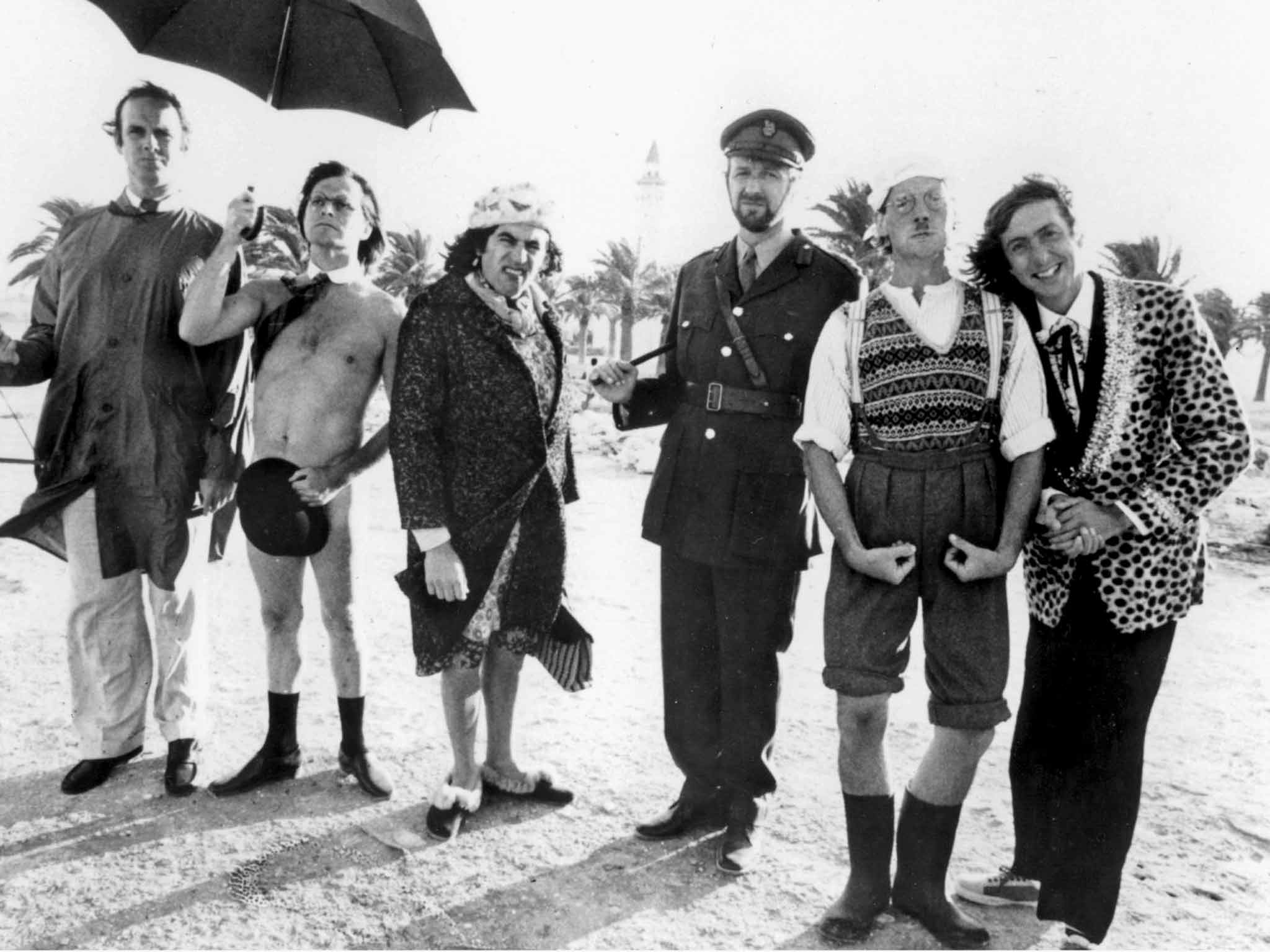I won’t apologise for joking about serious topics and neither should you
Sometimes a joke is really just a joke, not an attempt to overturn civil society

Your support helps us to tell the story
From reproductive rights to climate change to Big Tech, The Independent is on the ground when the story is developing. Whether it's investigating the financials of Elon Musk's pro-Trump PAC or producing our latest documentary, 'The A Word', which shines a light on the American women fighting for reproductive rights, we know how important it is to parse out the facts from the messaging.
At such a critical moment in US history, we need reporters on the ground. Your donation allows us to keep sending journalists to speak to both sides of the story.
The Independent is trusted by Americans across the entire political spectrum. And unlike many other quality news outlets, we choose not to lock Americans out of our reporting and analysis with paywalls. We believe quality journalism should be available to everyone, paid for by those who can afford it.
Your support makes all the difference.I heard a joke recently: "The new paedophile in town approaches the older paedophiles and asks them – 'where’s a good place to track down kiddies? Do you know a good place?' to which the older paedophiles respond 'Well, it’s swings and roundabouts really.' "
All credit to Frank Skinner; it’s a decent gag. Now confess: did you involuntarily twitch when you hit the third word of the joke? Did you glance round nervously when it appeared on your screen, like you’d been caught watching porn? In the event that you found it funny, would you happily re-tell it?
There’s now an approved template in how you deal with jokes like this. Firstly, the Outraged of Twitter must take to the digital pulpit and brand this “unacceptable” and “disgusting”. Then, the Paedophile Survivors Society will put out a statement on how it shows “complete lack of sensitivity”. A BBC News article giving prominent coverage to both will shoot to the top of ’Most Popular’. Sooner or later, an MP will be drafted in to call for an apology and 38 Degrees will host a petition demanding the perpetrator be stripped of their job, rank, title and their goods and lands seized.
Usually it winds up with a grovelling apology containing a staunch affirmation of how very, very serious this subject is and how it must never, ever be joked about.
There’s a fast-expanding list of topics falling into this arena: terrorism, paedophilia, religion, obesity and mental illness to name but a few. There’s only one prescribed way you may discuss them: in hushed, reverent, solemn tones, sharing your disgust and heartbreak, and stressing your empathy and demanding that Something Must Be Done™.
Humour is a vital part of our psychological self-defence mechanism: it’s how most of us process and deal with a world that can turn perverse and cruel in a heartbeat. A release of tension that allows us to live knowing we’re all under a hail of deadly arrows that can hit any of us at any time. Because that’s the stark truth, right?
Joking about the controversial, from “gallows” humour to pub gags, takes the sting out. It says we can live with it, and still smile. If anything, it’s the epitome of British resilience – keep calm, (laugh) and carry on. This is how our world-beating comedy and renowned humour was exported around the globe, and yet I wonder how much of it we’d get away with today.
Would Monty Python be strung up for mocking victims of crucifixion in Life of Brian? Would the digital pitchforks be out for Tommy Cooper making light of suicide by singing Don’t Jump off the Roof, Dad? Do the creators of Allo Allo have no shame in having fun with the world’s most efficient murderers?
It’s as if after centuries of wisecracks we can no longer separate satire from assertion, and gags from statements of intent.
Of course there are individuals that mask their prejudices through the medium of humour. You know who I mean — the man down the pub who occasionally holidays in parts of the country that the EDL happen to be marching through. You’re having a perfectly polite chat and he slips something in about immigrants, and grins. You can just see his podgy fingers trying to poke a little of his prejudice into the gaps between your conversation, encasing it in his Trojan horse-shaped joke to see if you’ll let him push it a little further.
We can all recognise this type of prejudice as clear as day – so if there's individuals out there who are that obvious, why are we all on the hunt for undeclared closet ratbags? Why so desperate to pounce on the person next to you and out them as a horrific individual rather than step back, breathe and accept that most of the time a joke really is a joke, and not a subversive attempt to overturn civil society?
I’ve lost two close relatives to cancer. It was an earth-shatteringly painful experience, both times. I’ve also told some hilarious gags about cancer and its effects, because that’s how you beat the power they have over you. We expend every ounce of ourselves fighting these monsters by day, and then we sit back and laugh at night, remembering that we’re still human and we’ll get through it all with a smile.
You always pick your audience wisely – Frank's joke had a time and a place but I won’t apologise for the jokes, and neither should you. If we lose our oldest defences against glumness and general misery, we’ll all have reason to be sorry.
So lighten up, Britain: it may never happen.
Join our commenting forum
Join thought-provoking conversations, follow other Independent readers and see their replies
Comments